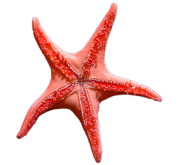Alaska SeaLife Center Admits First Stranded Animal of the Decade February 25, 2020
Seward, Alaska (February 25, 2020)– A young male sea otter pup was admitted to the Alaska SeaLife Center (ASLC) on January 17, 2020. Thetwo week old otter pup was found stranded on a beach near Seldovia, AK with snowballs embedded in his fur and surrounded by birds.
A local resident called the stranding hotline to report that the young otter had been seen alone and there were no other otters in sight. After receiving permission from U.S. Fish and Wildlife Service, Smokey Bay Air donated the flight to get the pup to Homer where a team of volunteers transported the otter to the Center.
The sea otter pup, now seven weeks old, is under 24-hour care from our Wildlife Response Team. “Young otter pups like this one need constant care and attention, from grooming his coat to encouraging him to play in the pool. We are with him around-the-clock,” stated Wildlife Response Curator, Jane Belovarac. Currently, the otter is getting fed both formula and solid food every 3 hours. The team has slowly introduced clam into his diet and he is progressing well. Caretakers continue to work on getting him to practice proper grooming skills like rolling in the water and swimming with purpose. This young pup has already proven to be quite the athletic otter as he swims and manipulates toys in the water.
The Alaska SeaLife Center is a 501(c)(3) not-for-profit organization and the only permitted marine mammal rehabilitation center in Alaska. Over 80% of the funding for ASLC’s Wildlife Response Program comes from charitable donations. The Center is thankful for individual donors and organizations like Marathon Petroleum Corporation, SeaWorld & Busch Gardens Conservation Fund, BP Alaska, ConocoPhillips Alaska, PetZoo, GCI, HDR Marine, and Graphic Works whose generous support helps ASLC care for marine mammals like sea otters.
Since the Alaska SeaLife Center responds to 33,904 miles of coastline, stranding partners and civilians are critical in assisting the Center with wildlife response calls. When an animal is in distress the first reaction is often to tend to it. This can be a mistake as it is sometimes difficult to distinguish distress from normal behavior. Sea otters leave their young in what they perceive to be a safe place while they forage for food. If people or pets are nearby when they return they are likely to abandon their young. Marine mammals have been safeguarded by the Marine Mammal Protection Act since 1972, so any disturbance to them is illegal without permission from the correct government authorities. If a sick or injured animal is encountered, ASLC staff urge people to call first, observe at a safe distance, respect the animal’s territory, and keep pets and children away. ASLC operates a 24- hour stranding hotline where trained professionals will walk people through the proper steps to assist the animal. Call 1-888-774-SEAL if you see a marine mammal in distress.
About the ASLC
Opened in 1998, the Alaska SeaLife Center operates as a private, non-profit research institution and public aquarium, with wildlife response and education programs. It generates and shares scientific knowledge to promote understanding and stewardship of Alaska’s marine ecosystems. The ASLC is an accredited member of the Association of Zoos and Aquariums. To learn more, visit www.alaskasealife.org.
High-resolution photos available from media@alaskasealife.org or 907-224-6397


